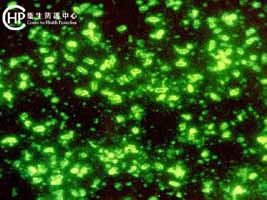|
Domain: Bacteria
Kingdom: Prokaryotae
Phylum:
Proteobacteria
Class:
Gammaproteobacteria
Order:
Enterobacteriales
Family:
Enterobacteriaceae
Genus: Yersinia
Species: Yersinia
pestis

Photo: Centre for Health Protection
Yersinia pestis
is unicellular, placing it in the Bacteria domain. It is
classified as a Prokaryotae because of its absence of a nuclear membrane
and DNA that is not organized into chromosomes. Y pestis
fits in the Proteobacteria phylum because it is gram negative and a
facultative anaerobe (can live in absence or presence of oxygen.)
Being a purple sulfur bacteria places it in the Gammaproteobacteria
class, while it is considered in the Enterobacteriaceae family because
it lacks oxidase and is a non-spore forming bacteria.
Y. pestis
is considered a chemoorganotroph, which simply means it depends on
organic material for energy and carbon. It's shape is a small,
straight rod. Y. pestis is nonmotile and it's most
favorable temperature is from 28-30°C.
The sequencing of
the entire chromosome of Yersinia pestis is currently being explored at
the Sanger Center in Cambridge (UK).

Phylogenetic Tree of Yersinia pestis
|